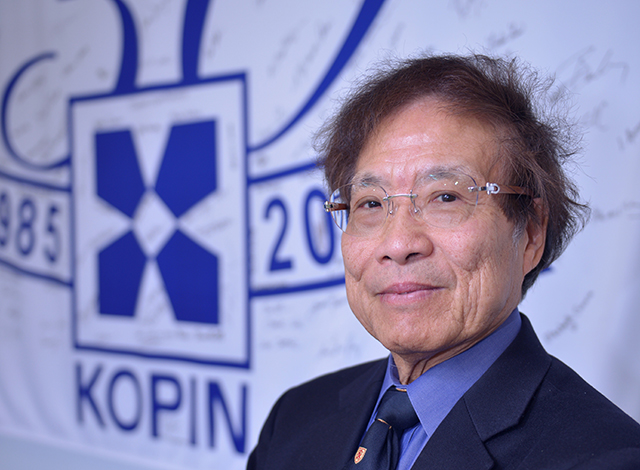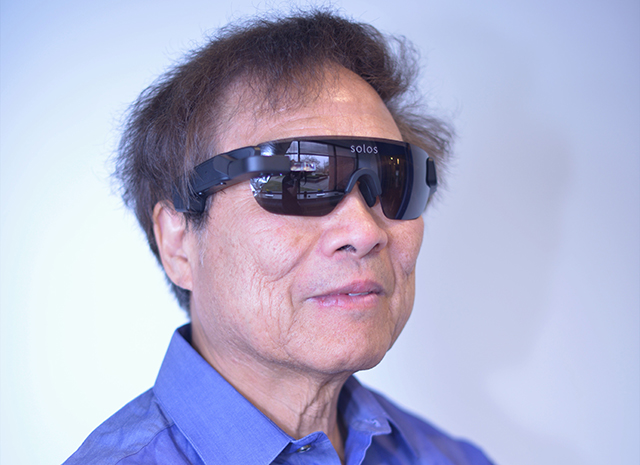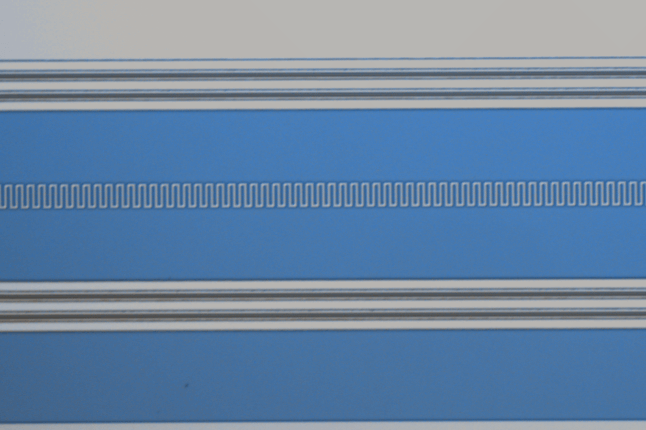News
Kopin Corporation founder and CEO John C.C. Fan, Ph.D. ’72, shares futuristic insights during Dean’s Industry Lecture Series
John C.C. Fan, Ph.D. ’72, founder and CEO of the Kopin Corporation, spoke about the future of augmented humans on Feb. 25 as part of the Dean’s Industry Lecture Series at the Harvard John A. Paulson School of Engineering and Applied Sciences.
In contrast to virtual reality, which displays a completely digital world, augmented reality is an analog world that mixes the physical and virtual worlds. The possibility of augmented reality has been transformed by the impact of wearables, 5G, big data, connectivity, the cloud, and the artificial intelligence platform. Fan finds that these technologies have spurred the growth of a variety of vertical applications, such as personal assistants and translation tools.

In his talk, Fan focused on the necessary conditions for successfully designing wearables for users. He believes that wearables need a head-worn hardware platform because humans typically process sensory information through their eyes and ears. He recommends optimizing this headset platform for aesthetic appeal and comfort, so that users are willing to integrate wearables into their daily lives. Operating software and applications will follow, but Fan believes that designing the right platform is a critical first step.
Drawing together insights from the 30-year history of wearable technology development, such as Clayton M. Christensen’s theory of disruptive innovation, Fan has developed a philosophy of design that puts humans first and technology second through simple, usable, and useful devices. He has studied a variety of headgear, such as sunglasses, headsets, face masks, and eyeglasses to more deeply understand why and how people choose to wear them. He has found it critical for devices to be comfortable, fashionable, light, and seamless. Unless absolutely necessary, humans rarely tolerate headgear that weighs more than 40 to 50 grams. Additionally, Fan believes that voice-centric designs will develop more quickly than vision-centric designs due to the importance of voice as a communication interface.
Fan discussed design challenges for making a usable, useful device, such as the balance between its essential and optional features. He suggests navigating these design challenges by emphasizing what people will actually buy and use.
With these guiding principles in mind, it won’t be long before augmented reality becomes a reality for all.

Topics: Events, Technology
Cutting-edge science delivered direct to your inbox.
Join the Harvard SEAS mailing list.


